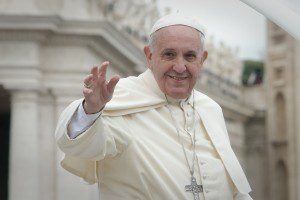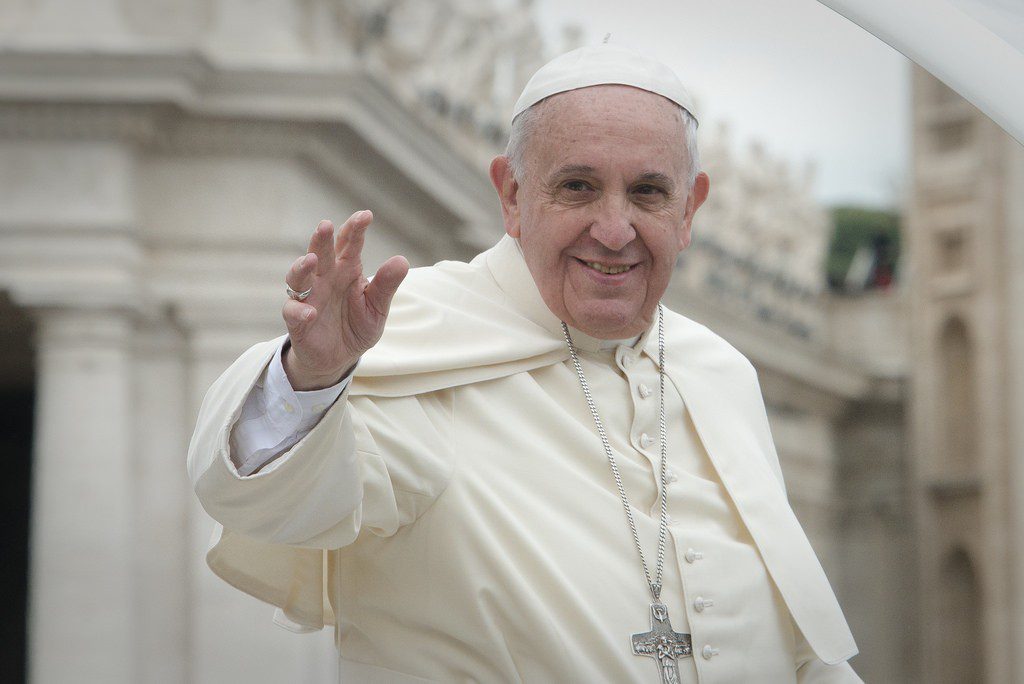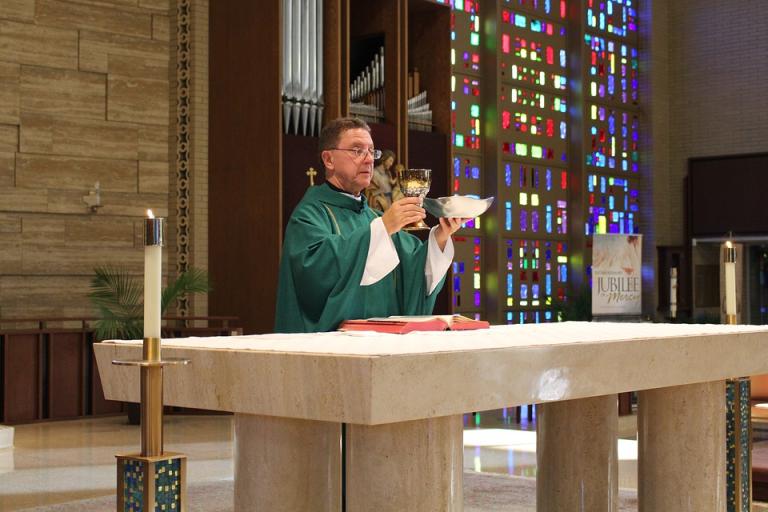So it’s Sunday night and I just clicked “publish” on a post I’d been working on, off and on, in which I observed that Pope Francis had made some, well, questionable remarks on the issue of “just war.”
To repeat/tweak those comments:
I find the Pope’s comments on just war to be genuinely concerning. There was a statement somewhere about the Pope disapproving of the idea of the “just war” and stating, in the context of the war in Gaza, that all war is always bad, with maddening vagueness about a nation’s need to defend itself. In trying to find out what exactly he said, I came across a piece from 2022, at CNA, “Pope Francis: ‘I believe it is time to rethink the concept of a just war’“, describing an interview in which he seemingly tried to have it both ways, both accepting a nation’s right to self defense but nonetheless claiming that “Resolving conflicts through war is saying no to verbal reasoning, to being constructive. … War is essentially a lack of dialogue.” It seems naive, at best, to believe that some meaningful number of wars could have been avoided by “dialogue,” as if it was all a matter of misunderstanding, rather than due to an aggressor who wanted to conquer another territory.
And one paragraph in particular was concerning:
“And when the anniversary of the landing in Normandy was commemorated, I thought of the 30,000 boys who were left dead on the beach. They opened the boats and said, ‘get off, get off,’ they were ordered while the Nazis waited for them. Is that justified? Visiting military cemeteries in Europe helps one realize this,” he said.
What the heck does he mean here? It sure sounds as if he believes that the loss of life was so great that the Allies should not have resisted the Nazis.
And then in yesterday’s news, another interview: as reported by Associated Press,
Pope Francis said in an interview that Ukraine, facing a possible defeat, should have the courage to negotiate an end to the war with Russia and not be ashamed to sit at the same table to carry out peace talks.
The pope made his appeal during an interview recorded last month with Swiss broadcaster RSI, which was partially released on Saturday.
“I think that the strongest one is the one who looks at the situation, thinks about the people and has the courage of the white flag, and negotiates,” Francis said, adding that talks should take place with the help of international powers. . . .
Vatican spokesman Matteo Bruni said Saturday that Francis picked up the “white flag” term that had been used by the interviewer. He issued a statement of clarification after the pope’s “white flag” comments sparked criticism that he was siding with Russia in the conflict.
Catholic pundit Rich Raho tweeted about it:
If you are surprised by Pope Francis’ new interview on the war in Ukraine, you haven’t been paying attention; Francis has evolved in his thinking on just war, and thinks no war is justifiable, but instead “madness.” This marks a shift in Catholic Church Teaching. pic.twitter.com/dPd6MoIJqu
— Rich Raho (@RichRaho) March 9, 2024
Which is, on the one hand absurd, but honestly, all of Francis’s comments on war seem to point, ultimately, to a perspective much like that line from Star Trek’s Borg, “Resistance is futile.”
He appears to reject all traditions of fighting oppression and tyranny because living under a government which oppresses its people, to whatever degree, is still better than dying. It may not be carefully thought-out, but his instinct is to say, “it’s not worth it, to give up your life for a cause, it’s just a waste. Better to go on living under undesirable circumstances instead!”
Yes, he frames this in the context of peace talks, but does Francis truly imagine that all that’s standing in the way of Russia withdrawing or even ceasing to conquer more territory, is Zelensky allowing him some way of saving face? I am skeptical. It simply seems far more likely, and more consistent with other statements, that he imagines a negotiation that actually gives Russia what they want, that is, Ukranian territory.
Monday, now.
One wonders what he thinks of all of the Christian martyrs throughout history. After all, in the times of the Roman persecution, the “ordinary” Christians were, generally speaking, perfectly safe, so long as they kept their heads down. Martyrdom was, for many, voluntary.
Or, more recently, consider Alexi Navalny, who returned to Russia after nearly losing his life. I admit I am not clear on whether or to what degree he recognized that his life was at risk, but everyone pretty much knew he wouldn’t leave the Russian prison alive, didn’t they?
And, of course, Francis’s actions, or lack thereof, as Provincial Superior of the Jesuits in Argentina in the 1970s when the military junta was actively “disappearing” people, are certainly consistent with a “don’t stick your neck out” belief, when his defenders spoke of him protecting certain priests at risk by moving them to safer locations. In fact, a Guardian article on the subject suggests, again, a “don’t put yourself at risk” approach:
Much is being written since Bergoglio’s election to the papacy about the two Jesuit priests Orlando Yorio and Franz Jalics, who were kidnapped by the military and held and tortured for five months, in 1976. His critics blame Bergoglio for their ordeal, saying he ousted them from the Jesuit Order for refusing to comply with his order that they stop working among the poor in the slum of Flores in Buenos Aires, leaving them unprotected from abduction by the military.
His supporters claim the contrary. “He was trying to save their lives by urging them to quit the slum,” says Alicia de Oliveira, a human rights lawyer and lifelong friend of Bergoglio.
And, to be clear, I am not saying that any one of us has an obligation to risk our lives for another’s sake, or for the cause of liberty. But to do so is admirable, not futile.













